Blog
Februar 2026
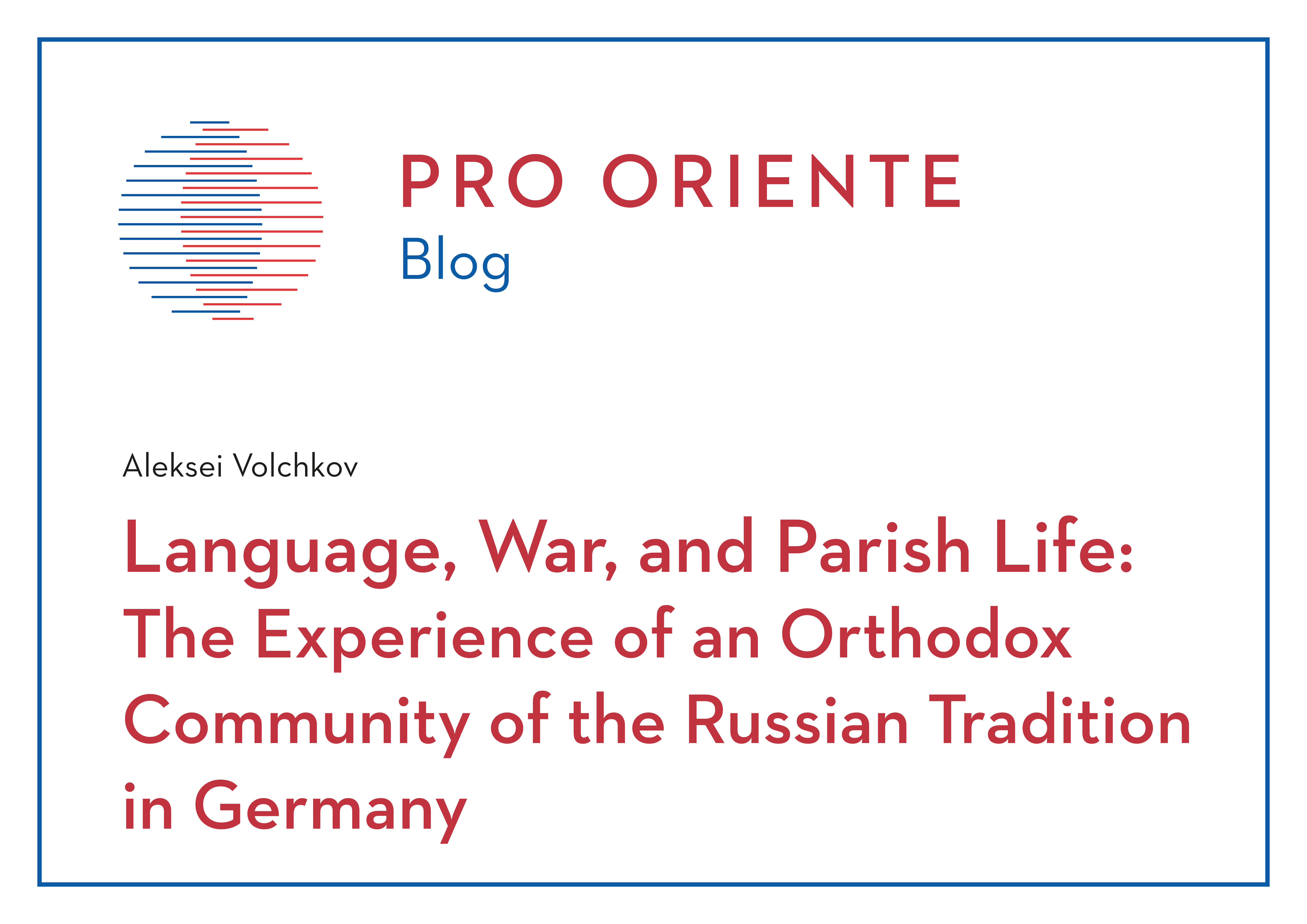
Language, War, and Parish Life: The Experience of an Orthodox Community of the Russian Tradition in Germany
Many of us have experienced living in a foreign country for a long time, surrounded by people of another culture and language. Or working in a team where everyone is a foreigner. Or attending a university course where there is not a single compatriot among the students. And suddenly someone greets you in your native language. Or someone learns a few phrases just to support you: “How are you?” or “You look good today.” Christians have a special word to describe the feeling you experience when a stranger speaks to you in your native language — grace. In a world of alienation and indifference, the soul of another person touches your heart. Language makes this contact possible.
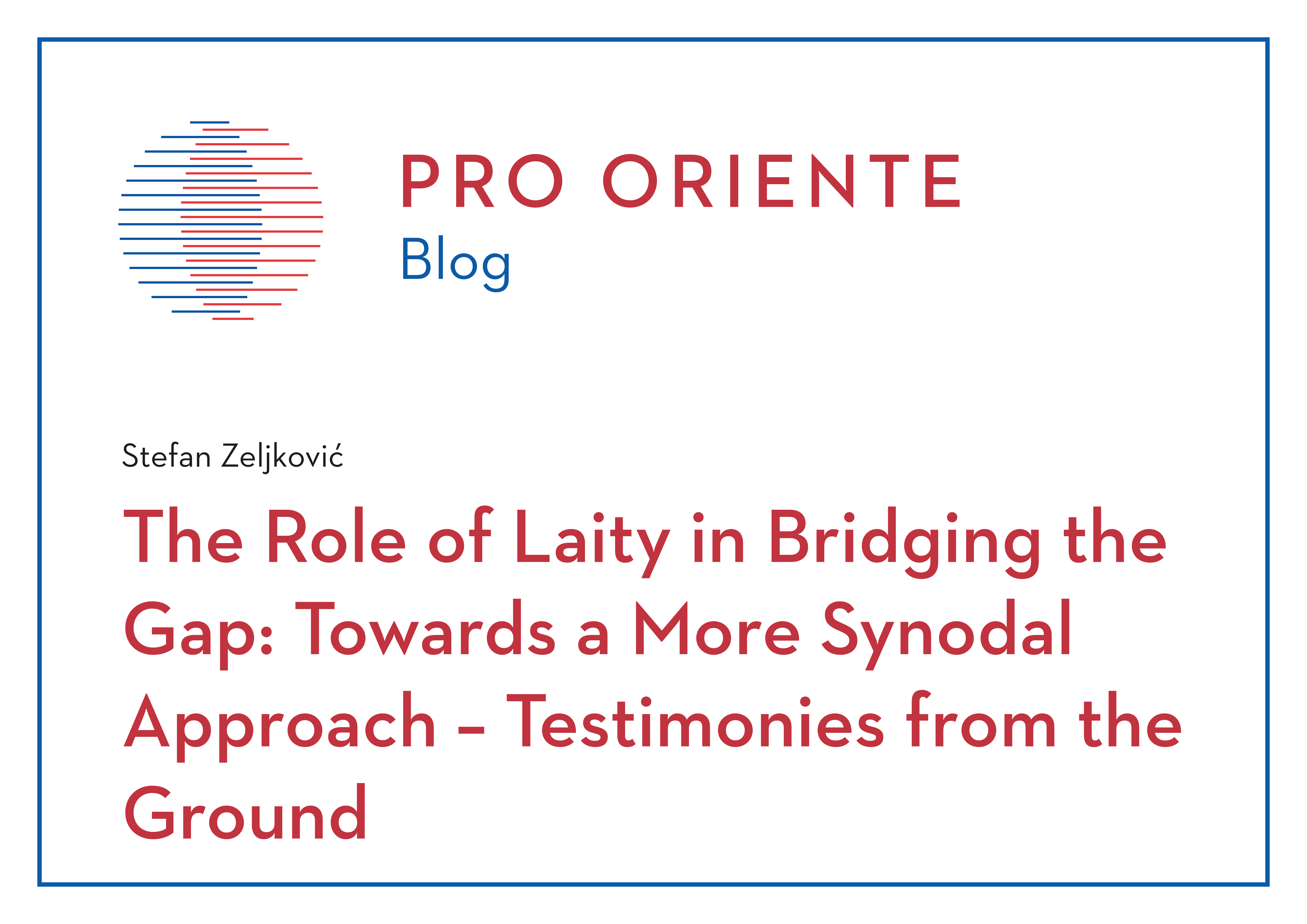
The Role of Laity in Bridging the Gap: Towards a More Synodal Approach – Testimonies from the Ground
In post-conflict contexts, particularly in Southeastern Europe, questions of justice, reconciliation, and memory remain deeply intertwined with ecclesial life. These processes do not take place only at the level of official church statements or theological documents, but are lived out daily in local communities, educational initiatives, and interpersonal encounters. Within this space, the role of the laity has proven to be both significant and irreplaceable.
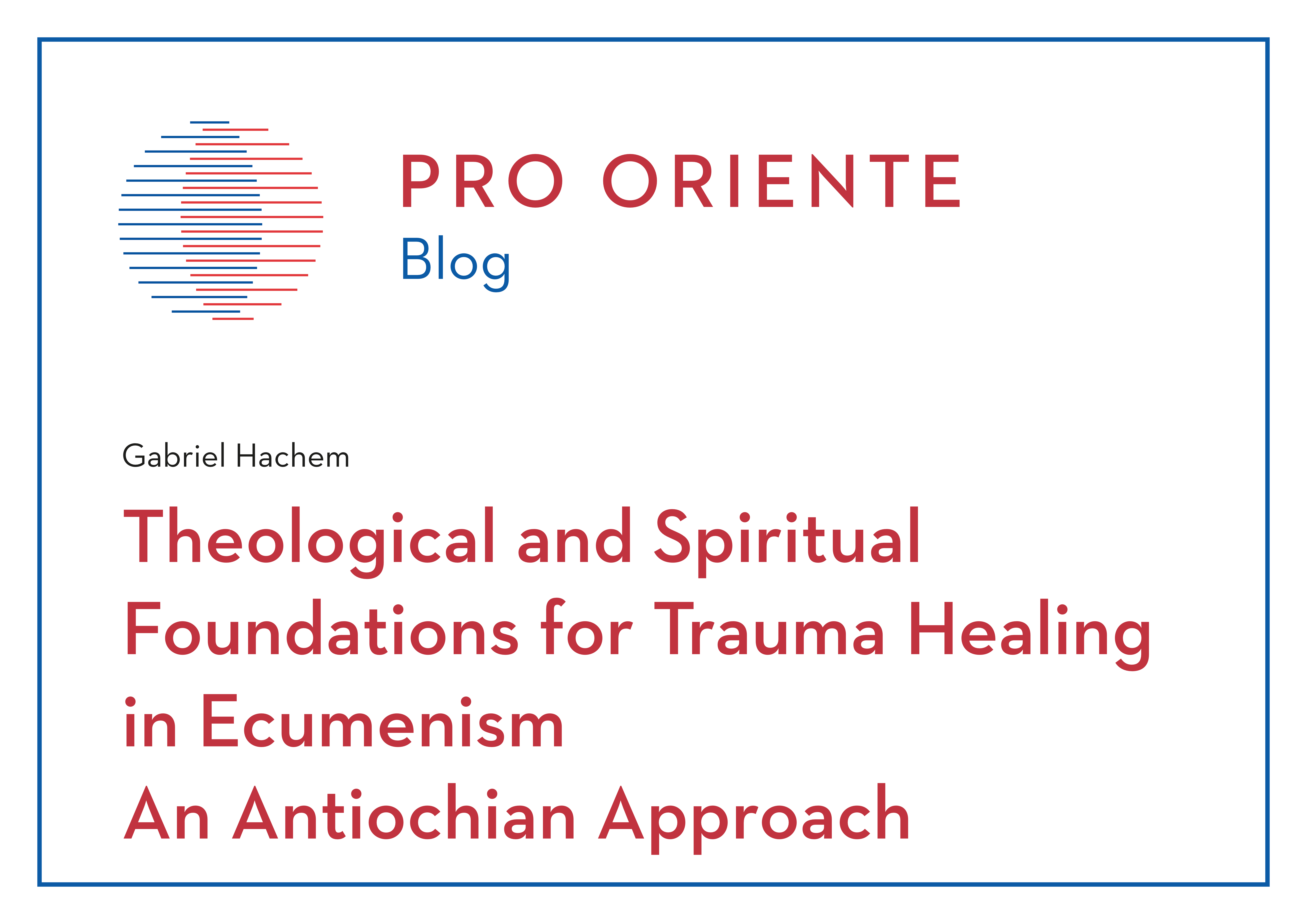
Theological and Spiritual Foundations for Trauma Healing in Ecumenism – An Antiochian Approach
In the Antiochian theology, trauma healing finds its foundation particularly in the economy of salvation and the incarnation of the only-begotten Son. Because since the incarnation, the human person has become the meeting place (lieu) for God and humanity, theology and anthropology. When the Son became "man" he was called "Emmanuel", God with us, to restore us to His image, and make us participants in the Trinitarian life (cf. 2 Pet 1:4). Jesus inaugurated his ministry by proclaiming the Kingdom (Word) and healing the sick persons who were brought to him (Action), as mentioned by Matthew and Mark in their gospels. Meanwhile, Luke reveals the divine Mercy, and John the image of the good shepherd (chap. 10), the one who loves His sheep and cares for them at all times. Thus, Jesus Christ, the divine "Thaumaturge," never merely sought to miraculously heal the body or soul, but intended to save the human person in all its entirety. Salvation is indeed of the whole being, covering all components of the person.
Januar 2026
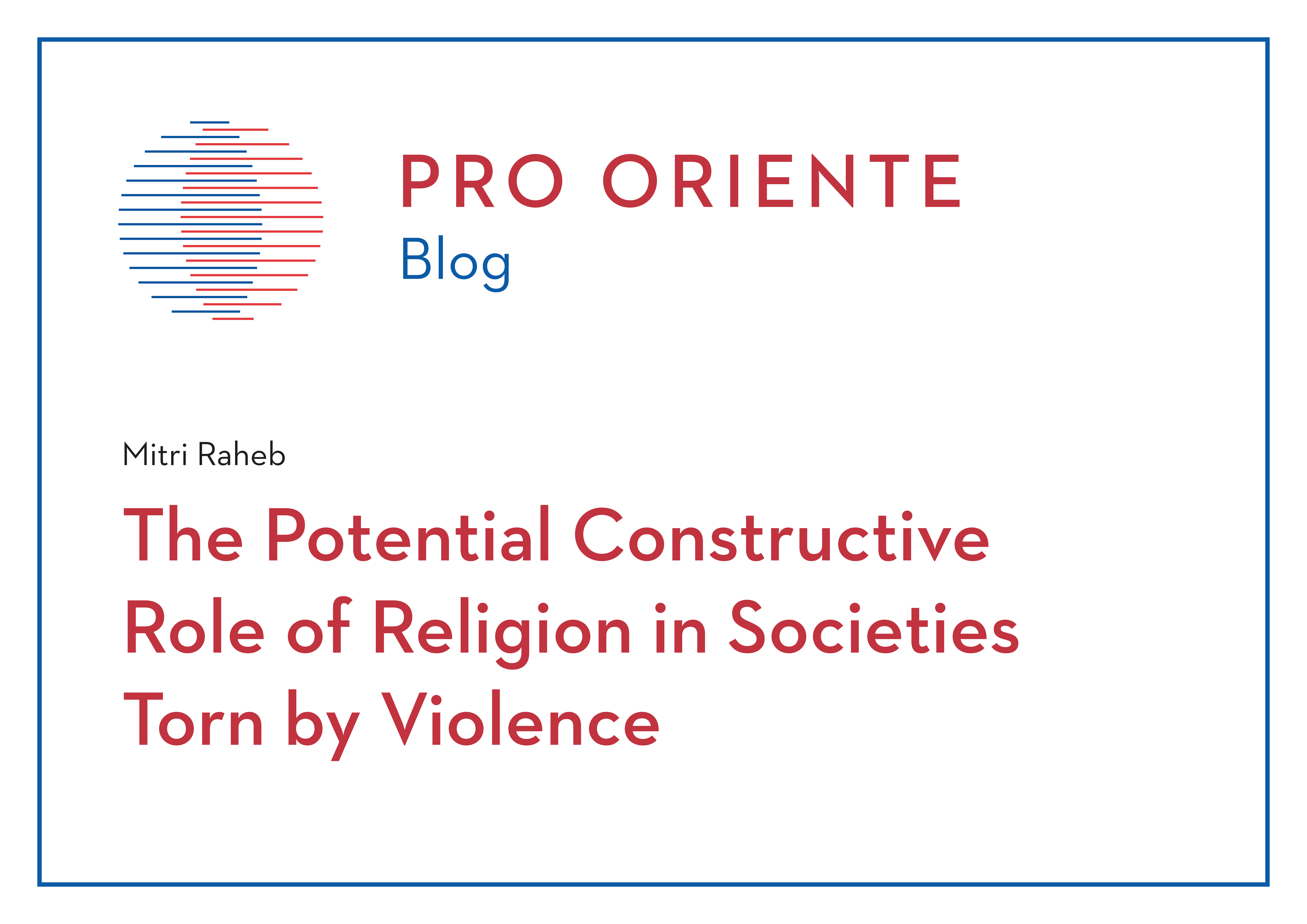
The Potential Constructive Role of Religion in Societies Torn by Violence
At first glance, the theme of this conference appears clear and straightforward. Yet once we begin to probe more deeply, its complexity quickly becomes apparent. In this short reflection, I would like to highlight five key aspects - briefly and in a somewhat telegraphic manner - that may help us think more clearly about the role of religion in contexts marked by violence. At first glance, the theme of this conference appears clear and straightforward. Yet once we begin to probe more deeply, its complexity quickly becomes apparent. In this short reflection, I would like to highlight five key aspects - briefly and in a somewhat telegraphic manner - that may help us think more clearly about the role of religion in contexts marked by violence.
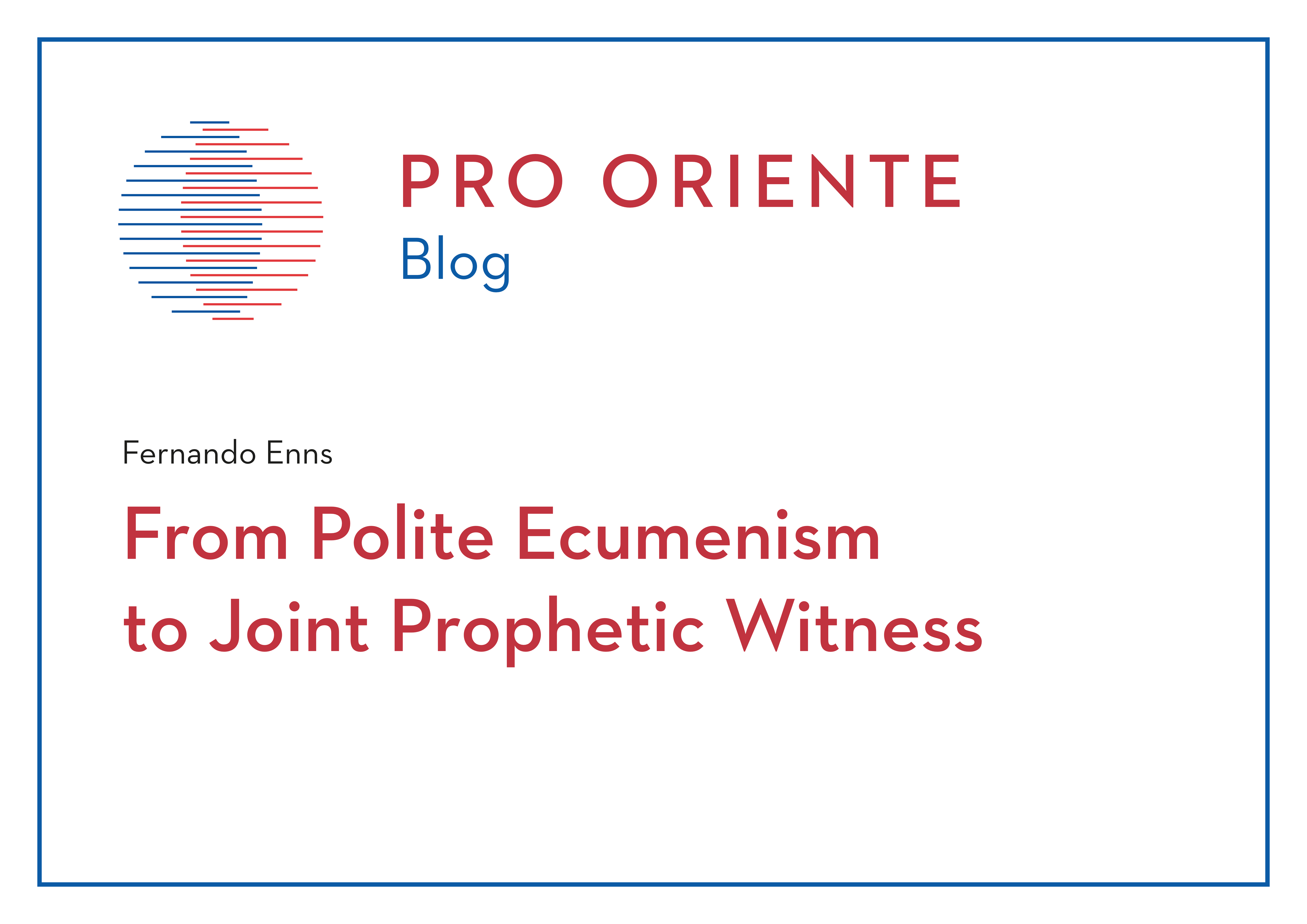
From Polite Ecumenism to Joint Prophetic Witness
Paul´s letter to the Ephesians calls to “make every effort to keep the unity of the Spirit” (Eph 4:3). As Paul writes this letter, he is in prison! And he asks the minority of Christians to keep “the bond of peace”, because this is the only way, they would be credibly witnessing to the Gospel of peace and justice. At the beginning of the 20th century, born out of times of fast-growing nationalism and militarization in European societies, church leaders re-discovered that “bond of peace”: The credibility of the gospel depends on the quality of the relations we live within and among the churches – transcending all national borders. And even if that young movement was not able to prevent two World Wars, it certainly helped shaping the need of an international community, translated into political and juridical institutions, working for reconciliation among former enemies.
Dezember 2025
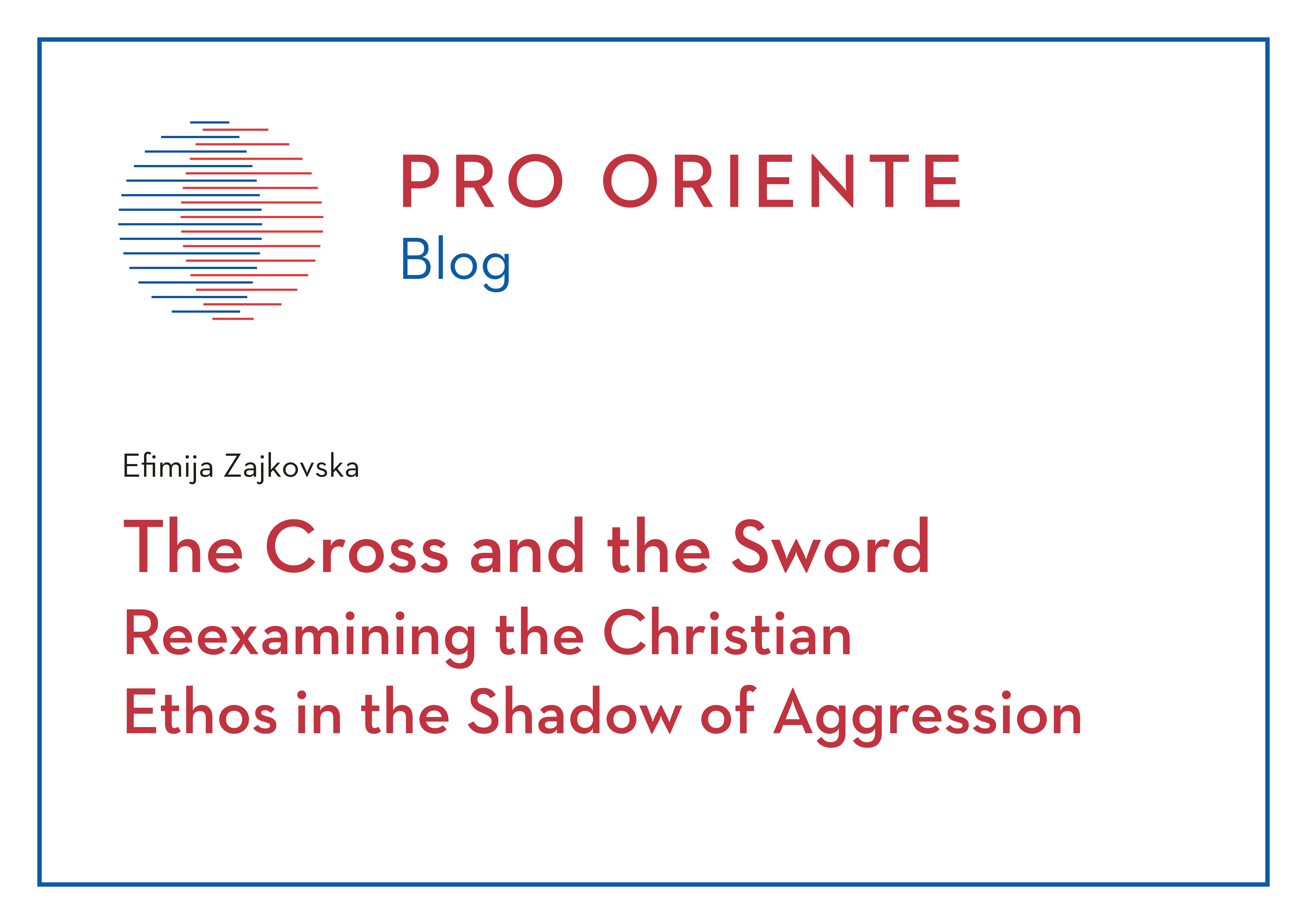
The Cross and the Sword: Reexamining the Christian Ethos in the Shadow of Aggression
We live in a world facing a profound and existential crisis, one that transcends politics and economics. At its core lies the crisis of the human spirit, from which all societal deviations stem. While rationalists propose countless bureaucratic solutions, the true crisis demands a deeper response: a radical re-examination of the Christian message in the face of modern aggression and war, starkly exemplified by the devastating conflict in Ukraine.
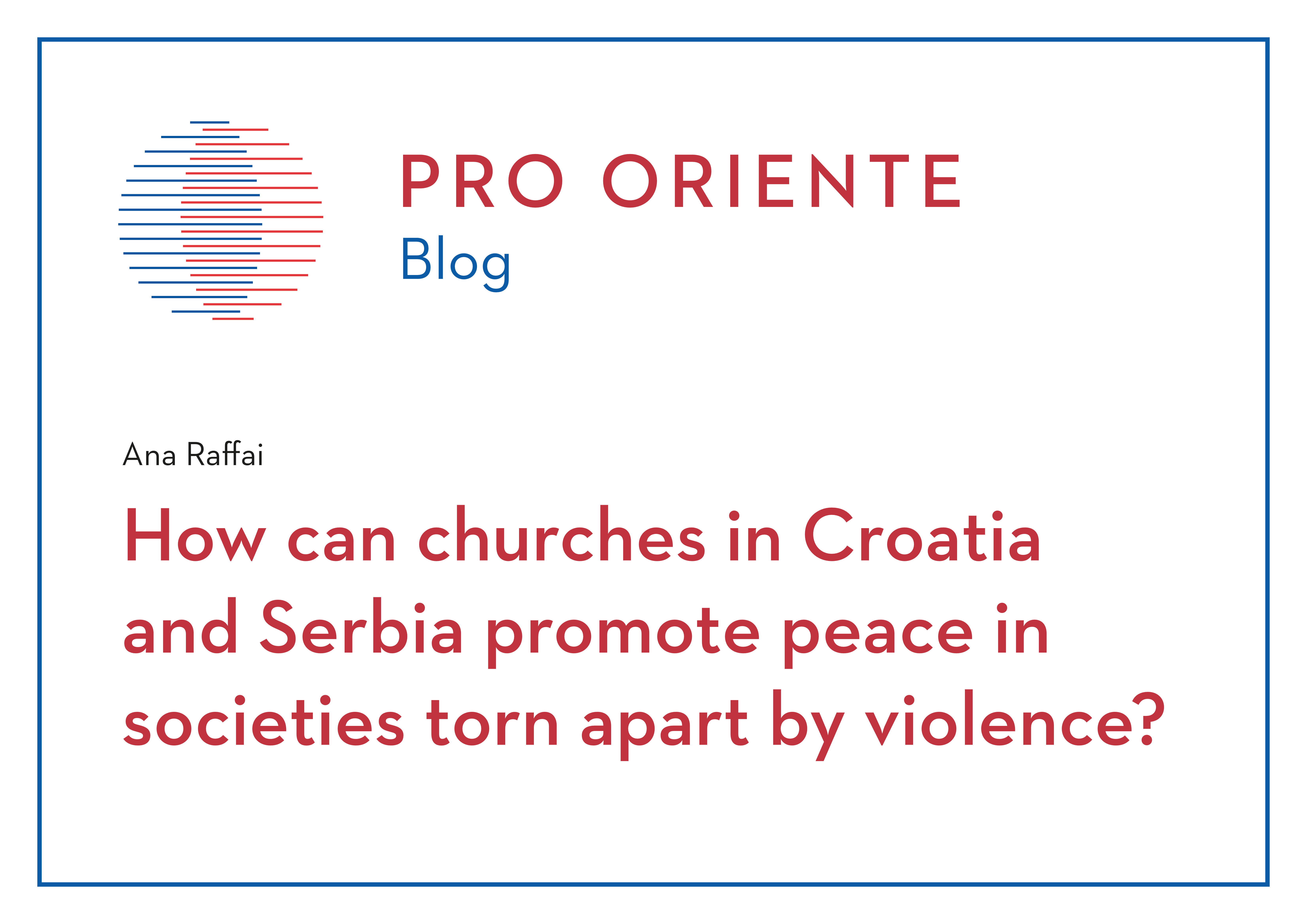
How can churches in Croatia and Serbia promote peace in societies torn apart by violence?
In this article, I would like to express how I feel about the churches in view of their peace efforts (peacemaking, nonviolence, anti-war initiatives), which, in my opinion, contribute to reducing violence in torn societies. I am mainly active in peace work in civil society peace organizations. The church as an institution is not involved in this area to a representative extent. There are always individuals who are motivated by their faith to work for peace. Unfortunately, neither the Catholic nor the Orthodox Church is recognized by society as a place for peace promotion. I am missing a clear strategy and visible practice of the churches in matters of forgiveness and reconciliation, which are particularly important after the last war (three decades ago).
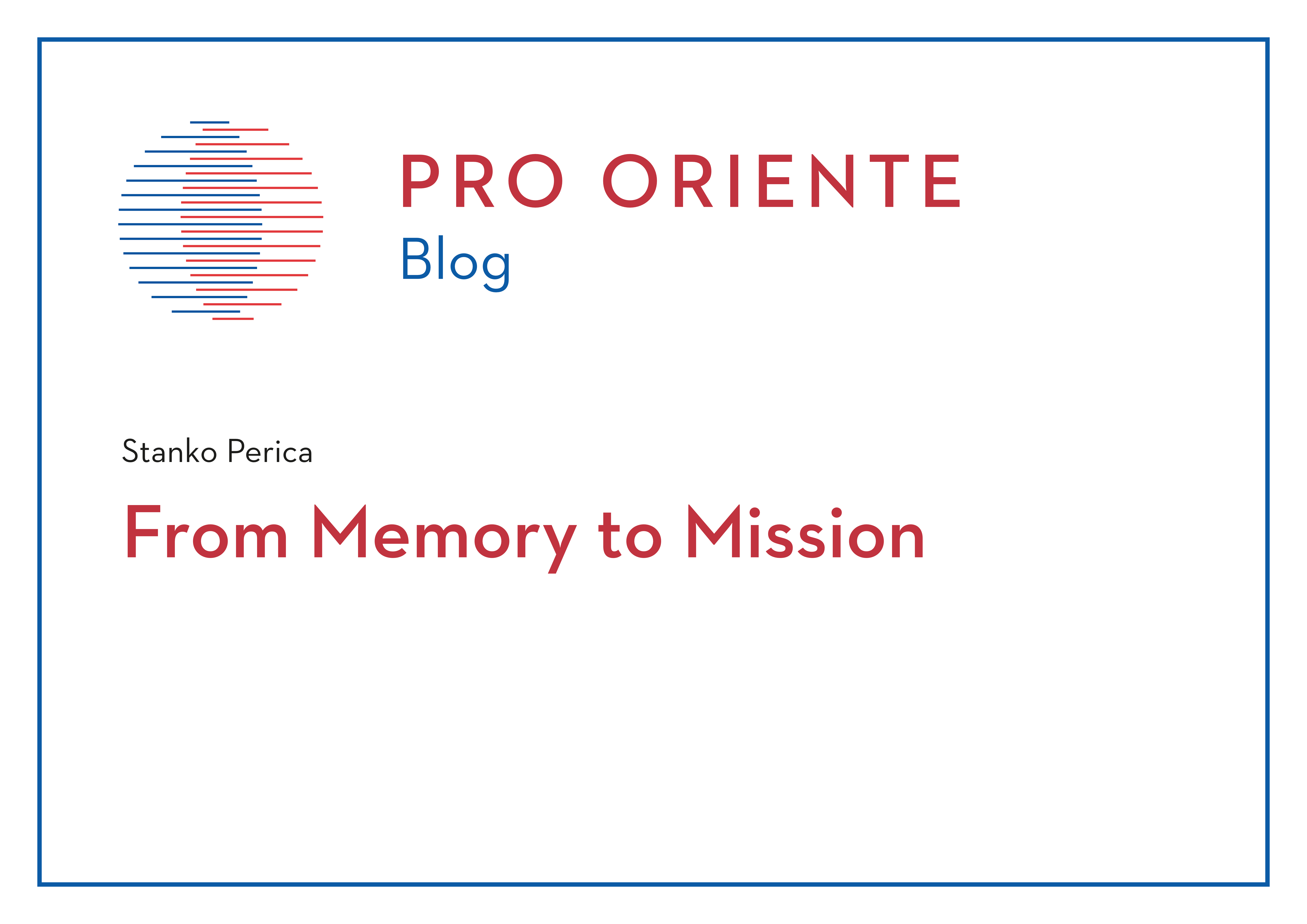
From Memory to Mission
Reflecting on ecumenism and interreligious dialogue, I have often felt frustration over how little progress is being made: few initiatives, limited collaboration, and slow results. Yet over time, I have learned that this frustration cannot simply be projected outward. There are contributions I can make myself, and responsibilities that belong to all of us. I would like to frame this reflection around three difficulties and three constructive responses. All are directly connected to the challenge of healing wounded memories, particularly in Southeastern Europe.
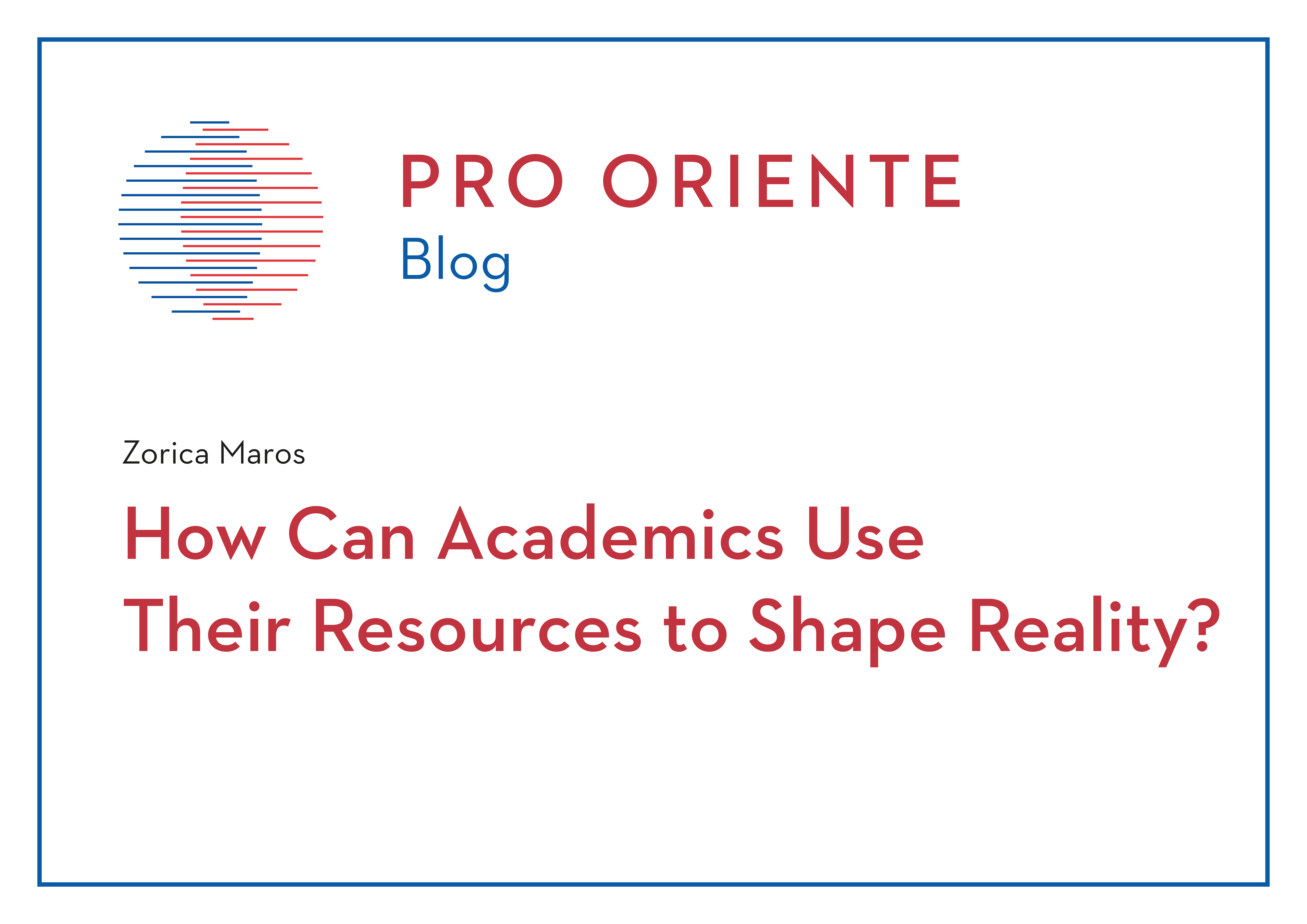
How Can Academics Use Their Resources to Shape Reality?
I will not be addressing trauma as a phenomenon, but rather what we, as a faculty, have done in confronting the past that ‘doesn’t want to go’, using Paul Ricoeur’s words. Even thirty years after the war, the context of the Bosnian and Herzegovinian (BH) society is still dominated by the same ideology that caused the war in the nineties. The war has created deep ethnic divisions, strengthened old prejudices and created new ones, causing deep divisions and distrust among citizens. From the standpoint of the country’s current situation, each of our involvements — even when not expressed through concrete action — in structures that sustain this war mentality makes us responsible for potential future crimes, precisely because we failed to prevent the “normalization of their preparation”.

From Polite Ecumenism to Joint Prophetic Witness
I was asked to reflect on how we can move from ‘polite ecumenism’ to a ‘joint prophetic witness’. I must confess that I am not very familiar with the expression ‘polite ecumenism’ nor with its meaning. According to Vatican II, ecumenism is, first and foremost, an internal duty, a ‘homework’ in a literal sense, an internal conversion (cf. Unitatis redintegratio 4), and not primarily a question of external relationships, polite or impolite.
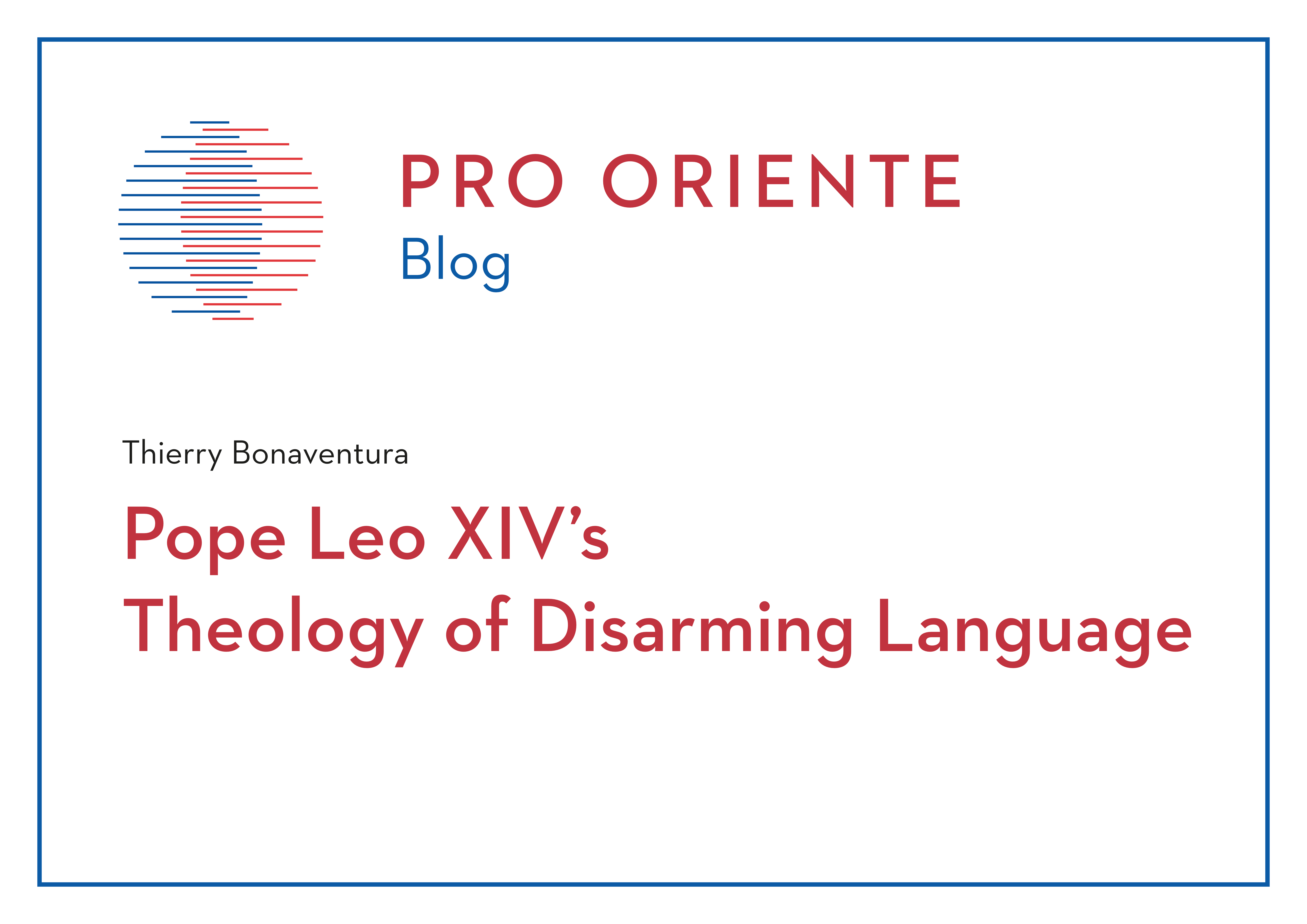
Pope Leo XIV's Theology of Disarming Language
The theme of peace is central to Pope Leo XIV's pontificate, and therefore his groundbreaking theological approach to “disarming language” represents one of the most distinctive and urgent contributions of his early teaching. Between May and October 2025, this theme evolved from an initial intuition into a comprehensive theological and educational program, addressing the contemporary crisis of hate speech, polarization, and verbal violence that characterizes our digital age.
September 2025
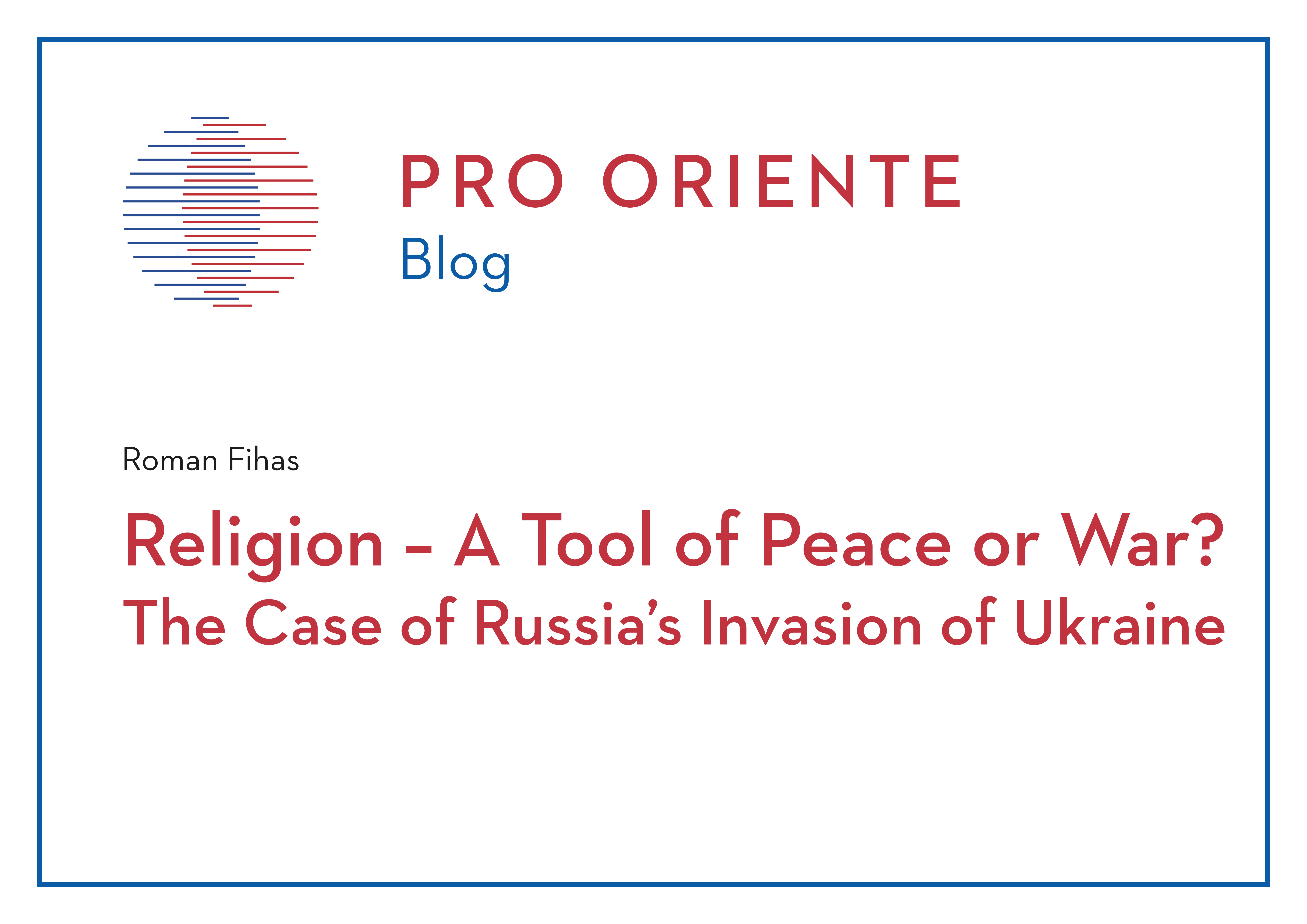
Religion – A Tool of Peace or War? The Case of Russia’s Invasion of Ukraine
The ongoing Russian invasion of Ukraine illustrates a sobering reality: religion, which is fundamentally meant to inspire peace, can also be weaponized to justify violence and war. In the case of Russia, religious narratives have been fused with political ideology to sanctify aggression, territorial expansion, and even genocide. For years, ideological conditioning prepared Russian society for war, embedding notions of a divine mission and a sacred Russian identity. These ideas were promoted not only through political propaganda but also with the support of religious institutions, particularly the Russian Orthodox Church (ROC). The invasion of Ukraine, therefore, is not only a military act but also an ideological crusade driven by religiously infused nationalism.
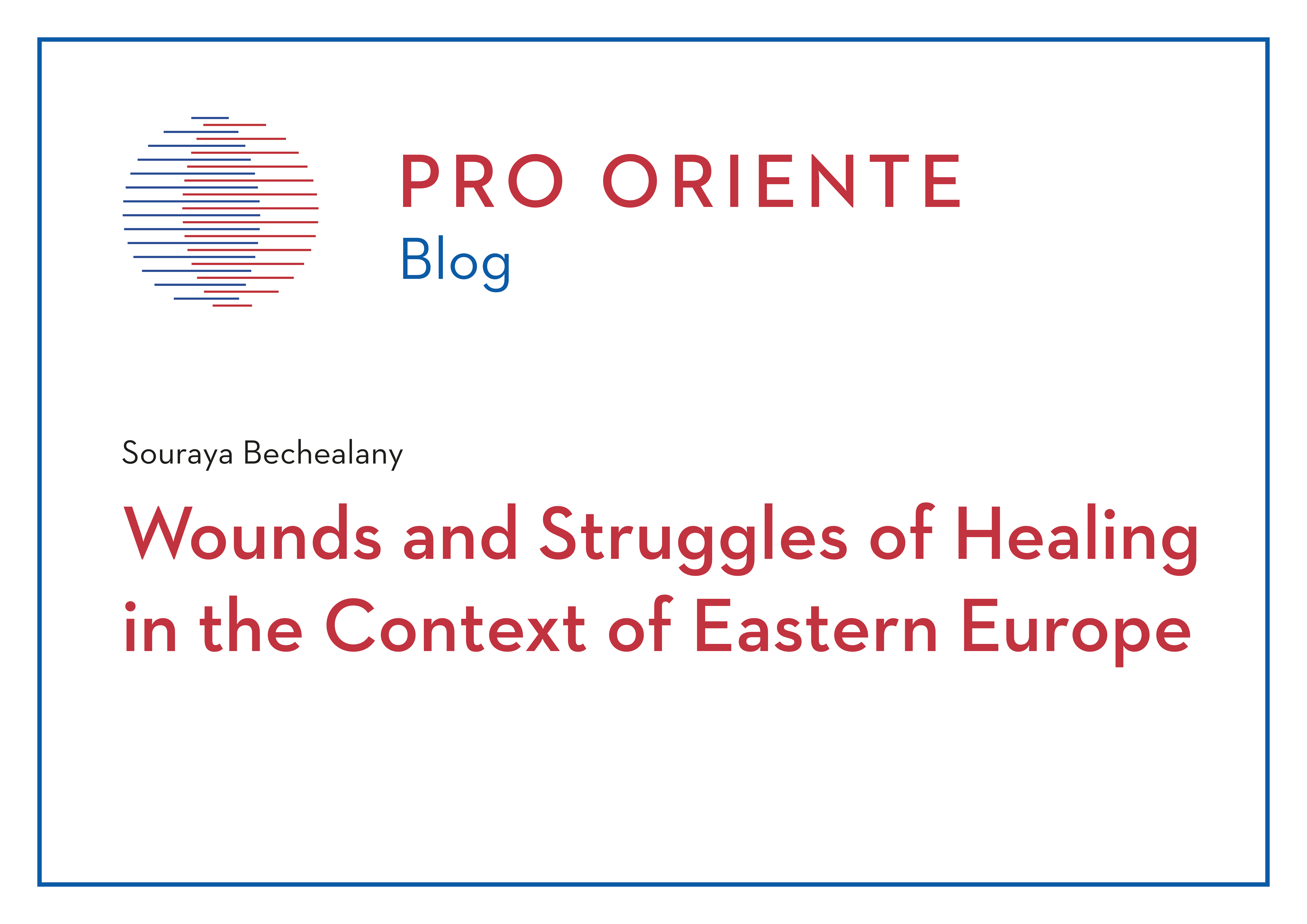
Wounds and Struggles of Healing in the Context of Eastern Europe
We have just gone three days on the topic of the healing of memories wounded by the lack of mutual love among Christians. It was asked to listen to you sharing about your wounds and your struggles of healing in the context of Eastern Europe, your common and ecumenical home. I share with you five ways that resonated in me, as a Christian of the Middle East.
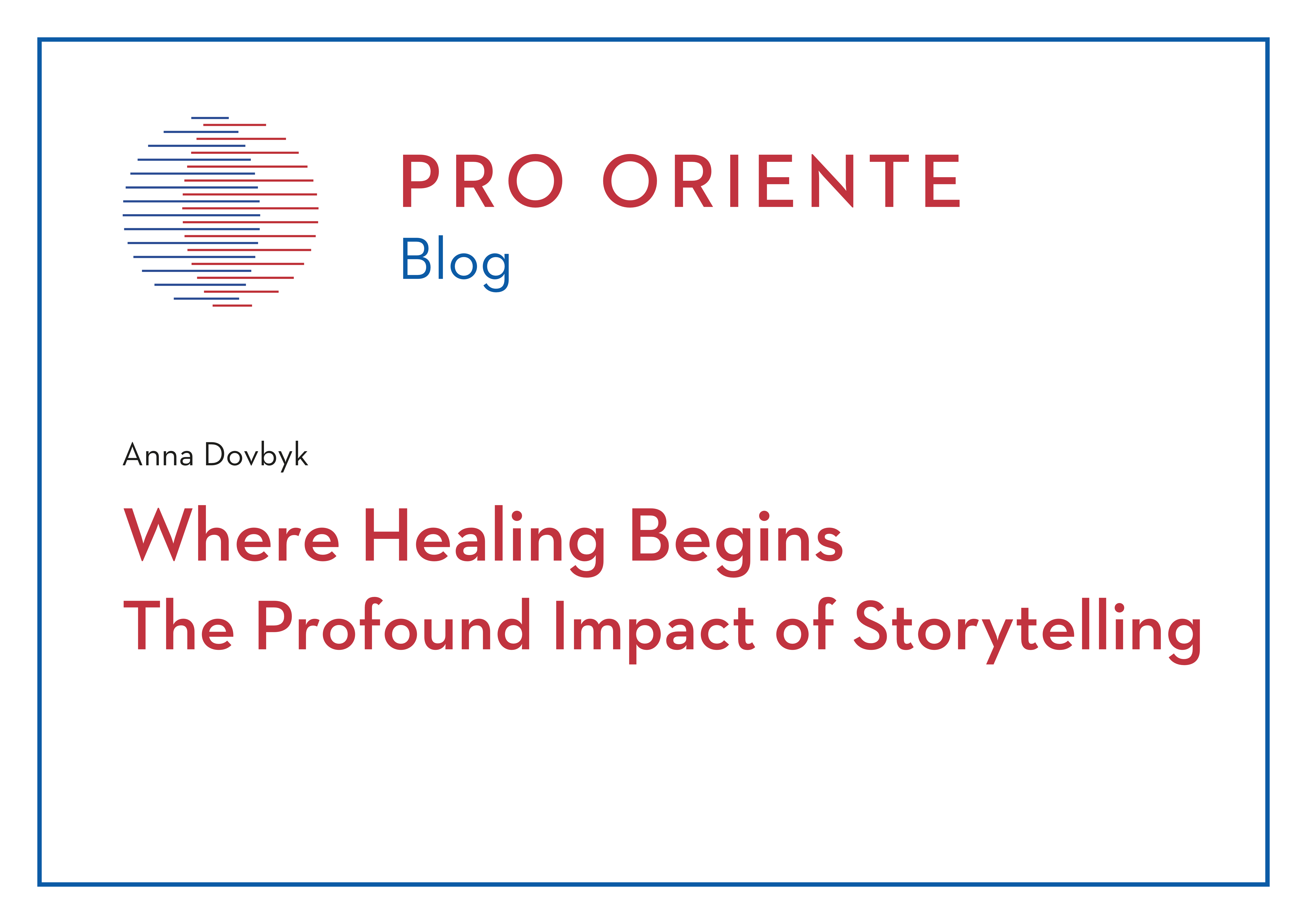
Where Healing Beings: The Profound Impact of Storytelling
Among many moments in the 'Healing of Wounded Memories' workshop, one left a lasting impression on me: the profound impact of storytelling. As a practitioner in the field of peacebuilding and conflict transformation, I see storytelling as a powerful tool for helping people connect through our shared humanity.
November 2024
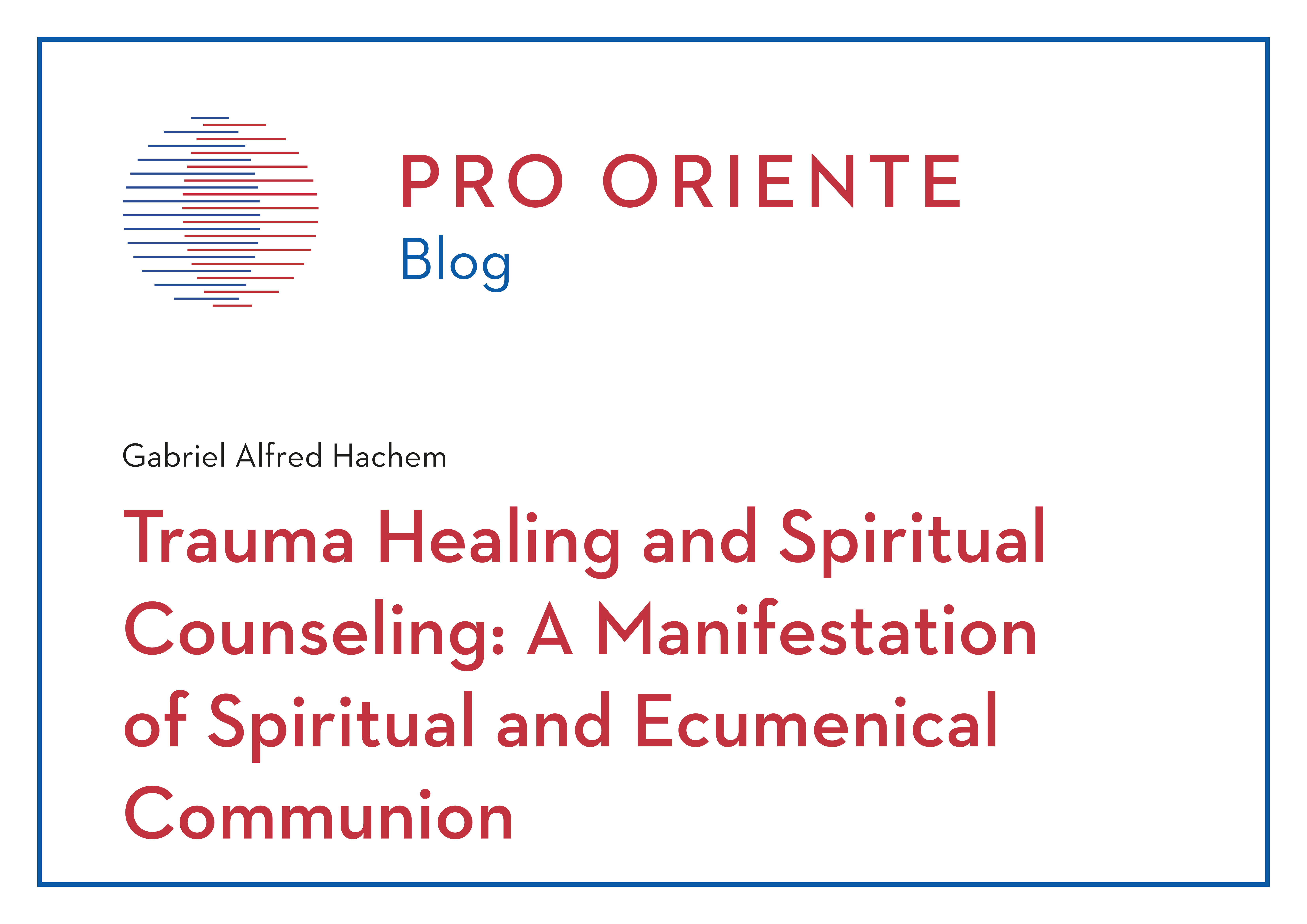
Trauma Healing and Spiritual Counseling: A Manifestation of Spiritual and Ecumenical Communion
What are the theological foundations for wounds healing in Christian life and in the ecumenical movement, as experienced in the Middle East?
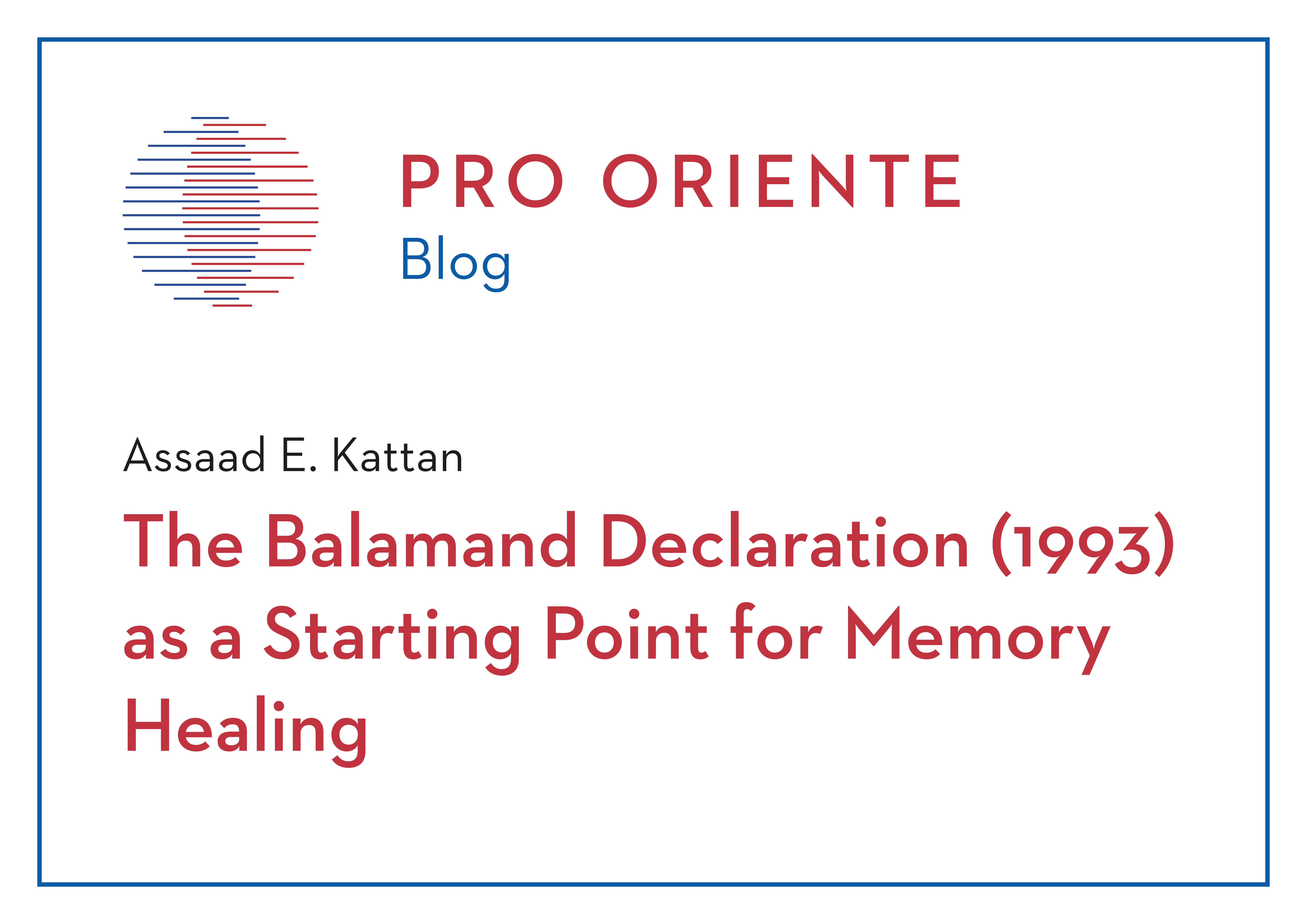
The Balamand Declaration (1993) as a Starting Point for Memory Healing
First of all, it should be noted that the Balamand Declaration, unlike its predecessors such as the documents of Munich (1982), Bari (1987), and Valamo (1988), has a very specific context. It emerged out of a crisis in Catholic-Orthodox relations related to the Eastern Churches united with the Roman Catholic Church after the fall of communism. The purpose of this declaration is primarily conciliatory, aiming to create a “serene atmosphere” (34) in order to advance dialogue (22). Therefore, it is just a step, a “necessary stage” (15) in the Orthodox-Catholic dialogue towards greater communion and full agreement “on the content of the faith” (15).
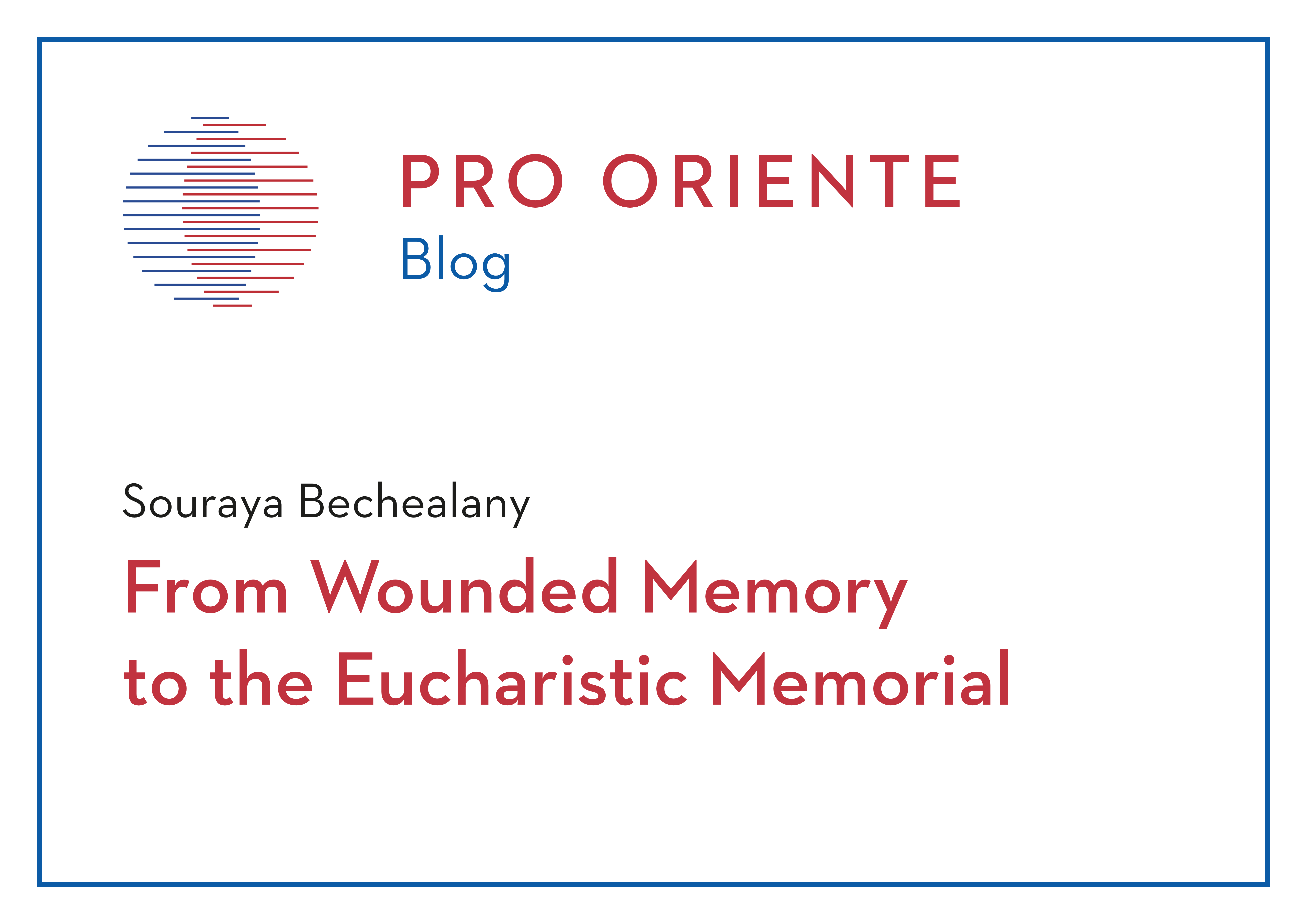
From Wounded Memory to the Eucharistic Memorial
This title expresses a trajectory, as it takes us from the wounded but transitory human memory to a liturgical event that does not pass; a divine event that heals and restores human memory, reconciling it with God, self, and the sisters and brothers.
September 2024
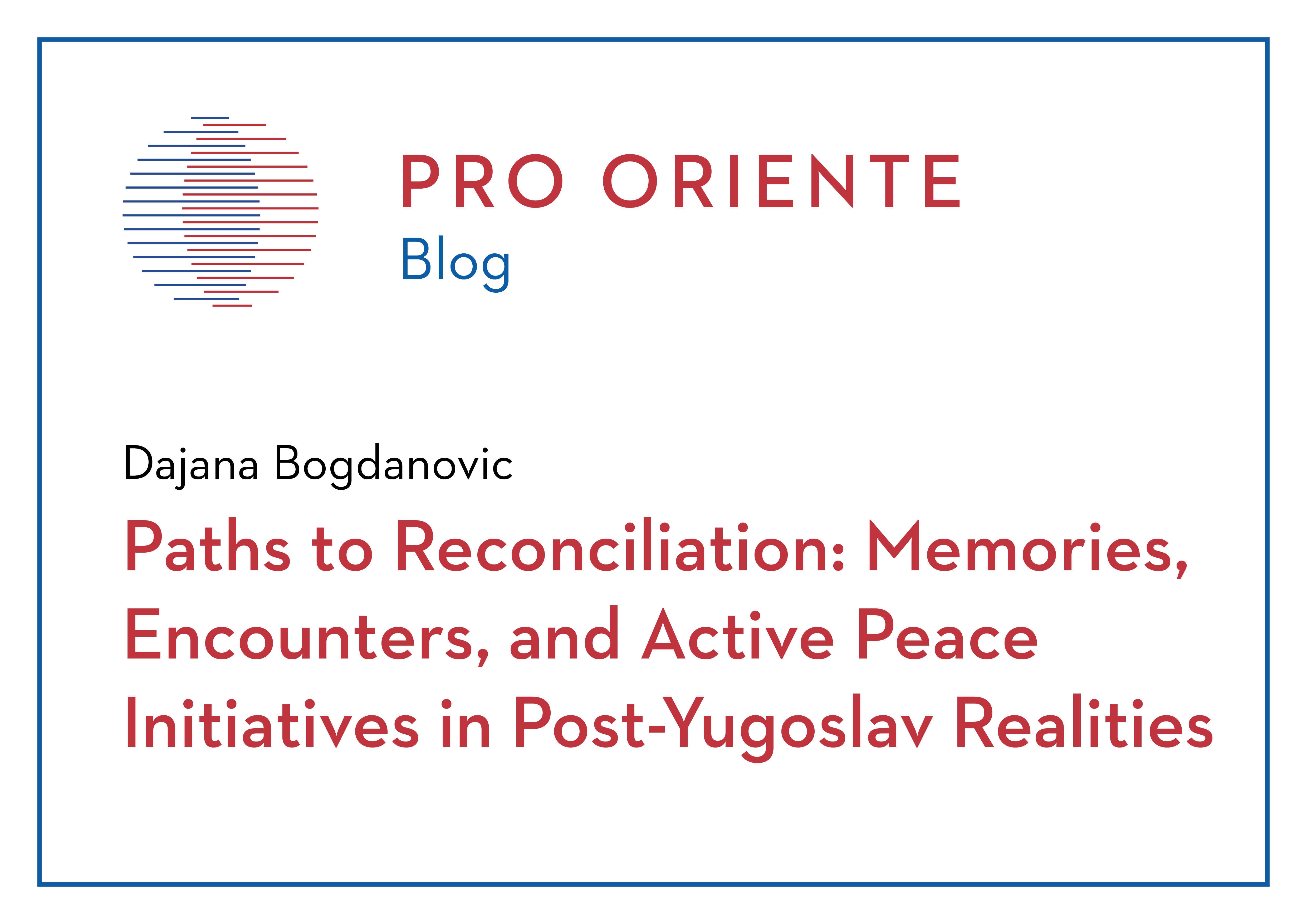
Paths to Reconciliation: Memories, Encounters, and Active Peace Initiatives in Post-Yugoslav Realities
Every monotheistic religion relies on same principles- those of love, respect and mercy. If all of us were created as the picture of God, in all its diversity, why do we use this diversity for separation instead of complementation? Religion in the Balkans has been an important factor in reconciliation, shaping the minds and influencing the hearts of believers, for finding a path towards the others in a positive way, and being influenced by positive examples of inter-religious dialogue, seen among religious leaders, but also different initiatives which gather large numbers of citizens.
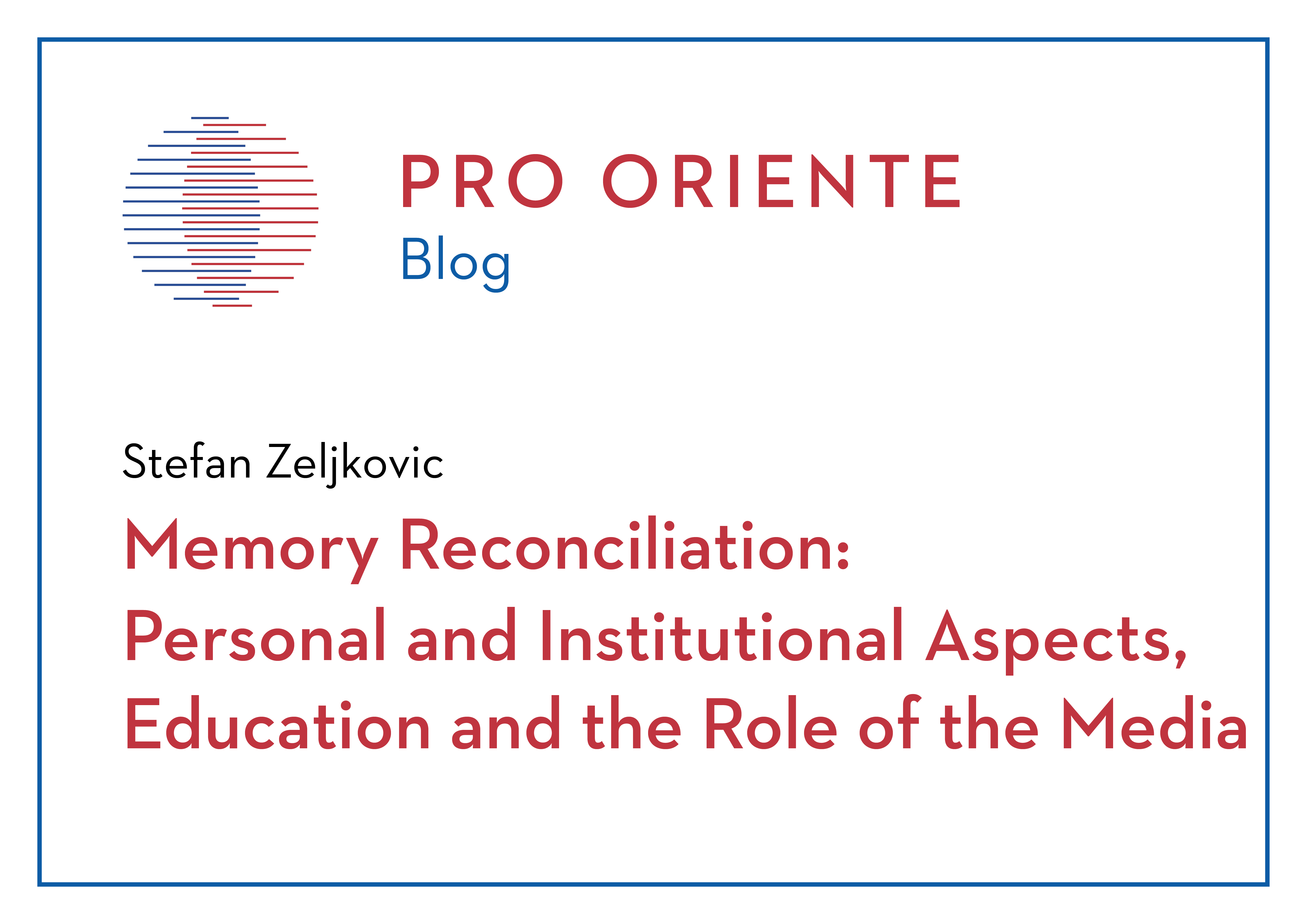
Memory Reconciliation: Personal and Institutional Aspects, Education and the Role of the Media
Memory plays a pivotal role in shaping collective identity and influencing perspectives on the past, present, and future. In societies scarred by historical conflicts, reconciling memories is essential for healing wounds, fostering comprehension, and constructing a more inclusive future. The juxtaposition of the culture of memory with the culture of forgetting underscores the continuum from collective remembrance to collective amnesia. This reconciliation is not merely about recalling past events but involves a complex process of reinterpreting and integrating those memories to build a shared future.
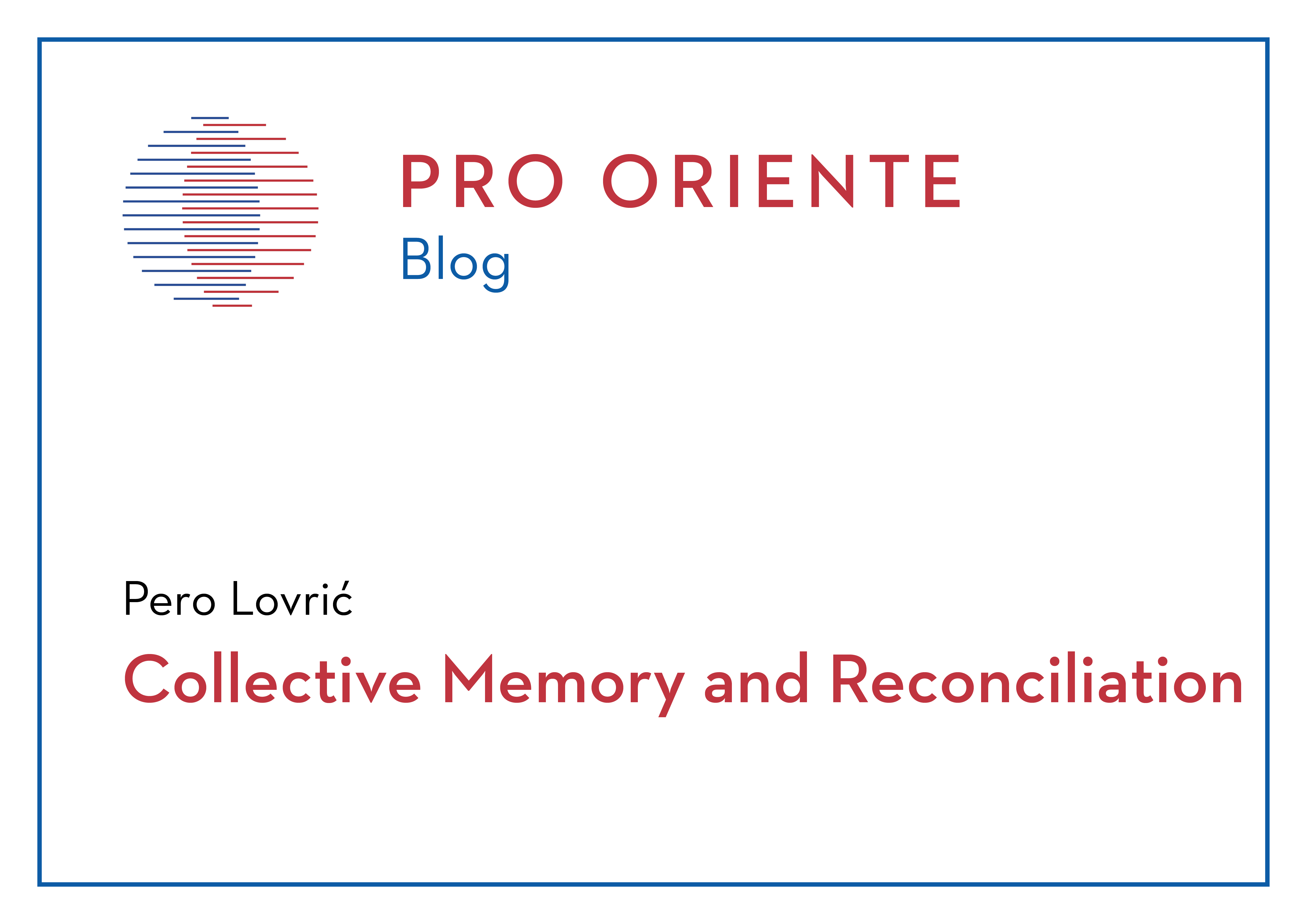
Collective Memory and Reconciliation
The question of whether memory should be transformed may seem debatable. Or at least, we should ask ourselves what is meant by transformation. When it comes to memory, the goal should be the right remembering, in which the principles of truth and justice have the greatest importance. We should therefore focus on the purification or rectification of memory, which enables the transformation of relationships. Correct shared memory is the prerequisite for forgiveness, reconciliation, and healing. These principles are the extensions of the Gospel proposition “The truth will set you free” (John 8:32) and should be the basis of any political theology. When two groups of people establish enough truth about their common past, it seems that they can create a creative and life-enhancing reality.
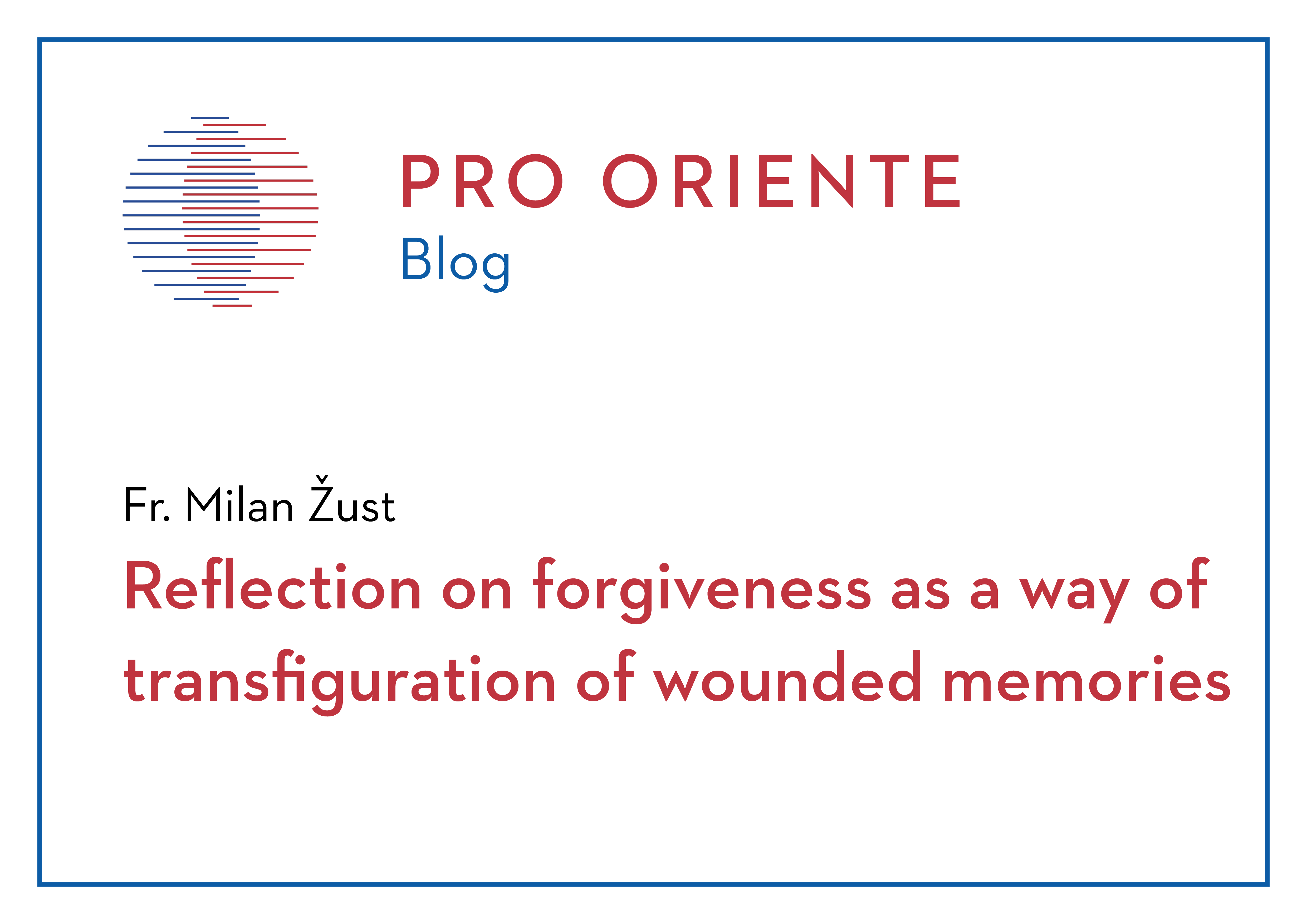
Reflection on forgiveness as a way of transfiguration of wounded memories
In the Catholic Church there have been various reflections on the healing of wounded memories, and various gestures, particularly around the Jubilee Year 2000. That very year, the International Theological Commission produced the document Memory and Reconciliation: The Church and the Faults of the Past, which deals with the purification of memory in various contexts, including between Christian communities. Among other aspects, the documents states that forgiveness granted to others and the request for forgiveness are indispensable steps towards healing wounded memories and reconciliation. Forgiveness, however, as well as the acknowledgement of one's faults, together with the request for forgiveness, are not within human strength.
August 2024
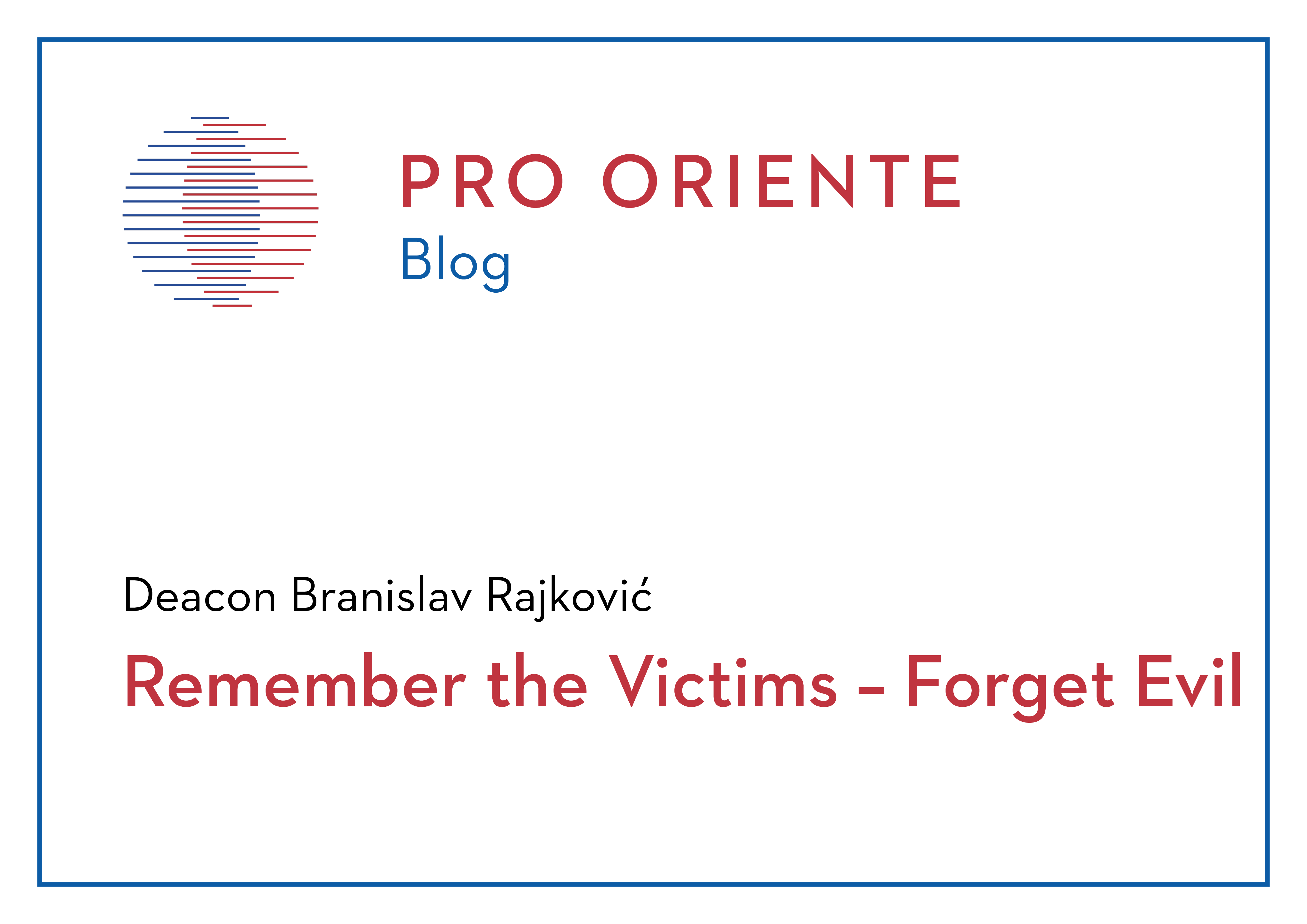
Remember the Victims – Forget the Evil
The ways to reconciliation, no matter how real they are, can only be like overgrown paths or lines on navigation maps, if they are not followed. Memories could be like the meadows along those paths - of various colors and smells but still wild, uncultivated and unpredictable, if they are not cultivated, which implies that something is grown on them, but something, if not quite uprooted, at least not nourished, something remembered, and something forgotten, because it would only make sense to talk about culture, that is, the cultivation of memory. The meetings themselves in this analogy could even be understood as comfortable highways, which still lead nowhere if people do not meet on them in sincere efforts to make peace..., while active peace initiatives would be like crossroads on those paths and roads, and personal examples would be the only sure signposts to the path, truth and life.
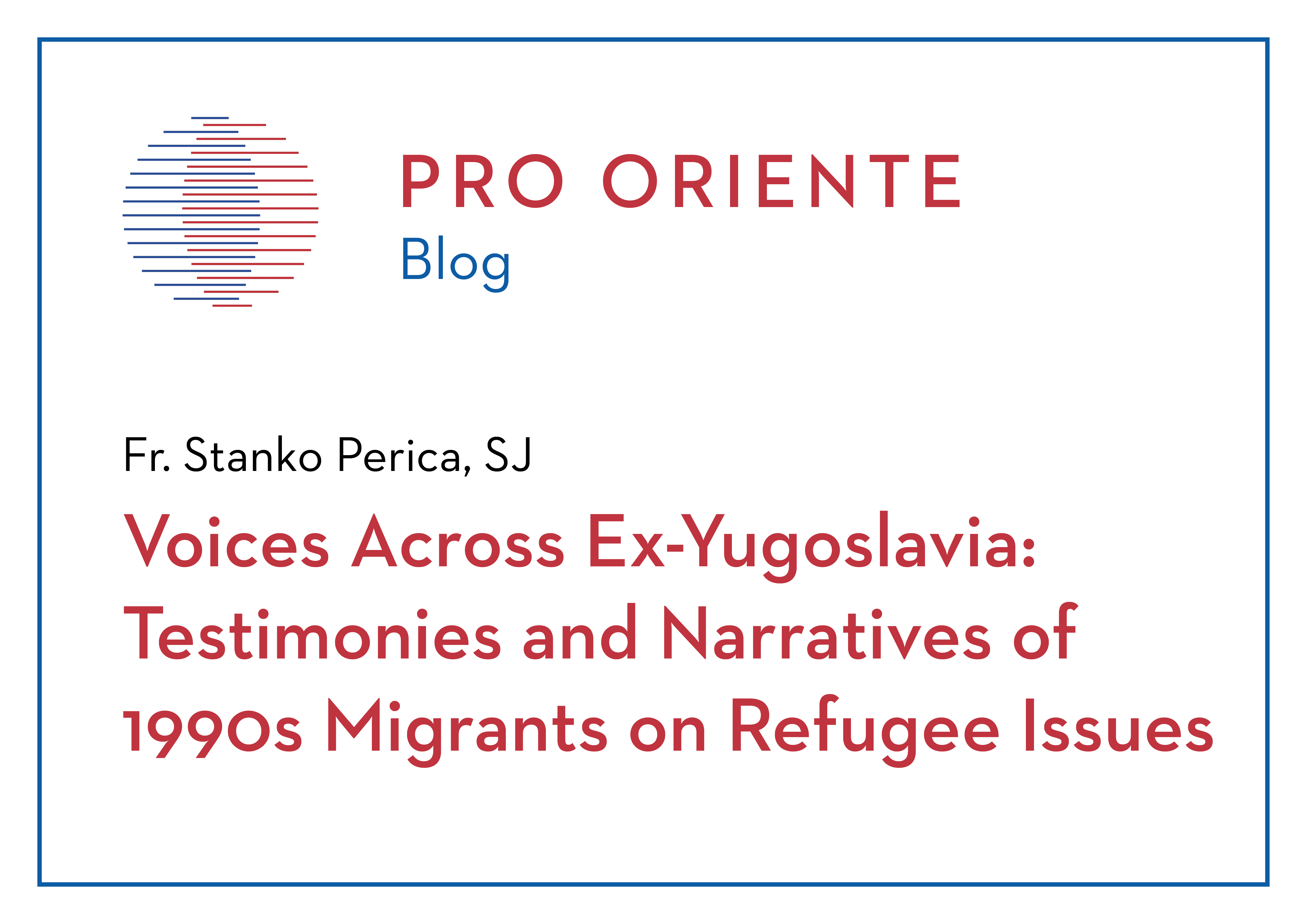
Voices Across Ex-Yugoslavia: Testimonies and Narratives of 1990s Migrants on Refugee Issues
Each refugee crisis is a tragedy. It means that there is a war, violence, political or religious persecution, some natural disaster or unbearable influence of climate change, or perhaps people are escaping from extreme poverty. Refugees present a collision with reality, with the world that is full of injustices and suffering. As is always the case with the bad news, there are two basic ways to cope with it: to deny and disregard it, or to allow ourselves to be moved by it.
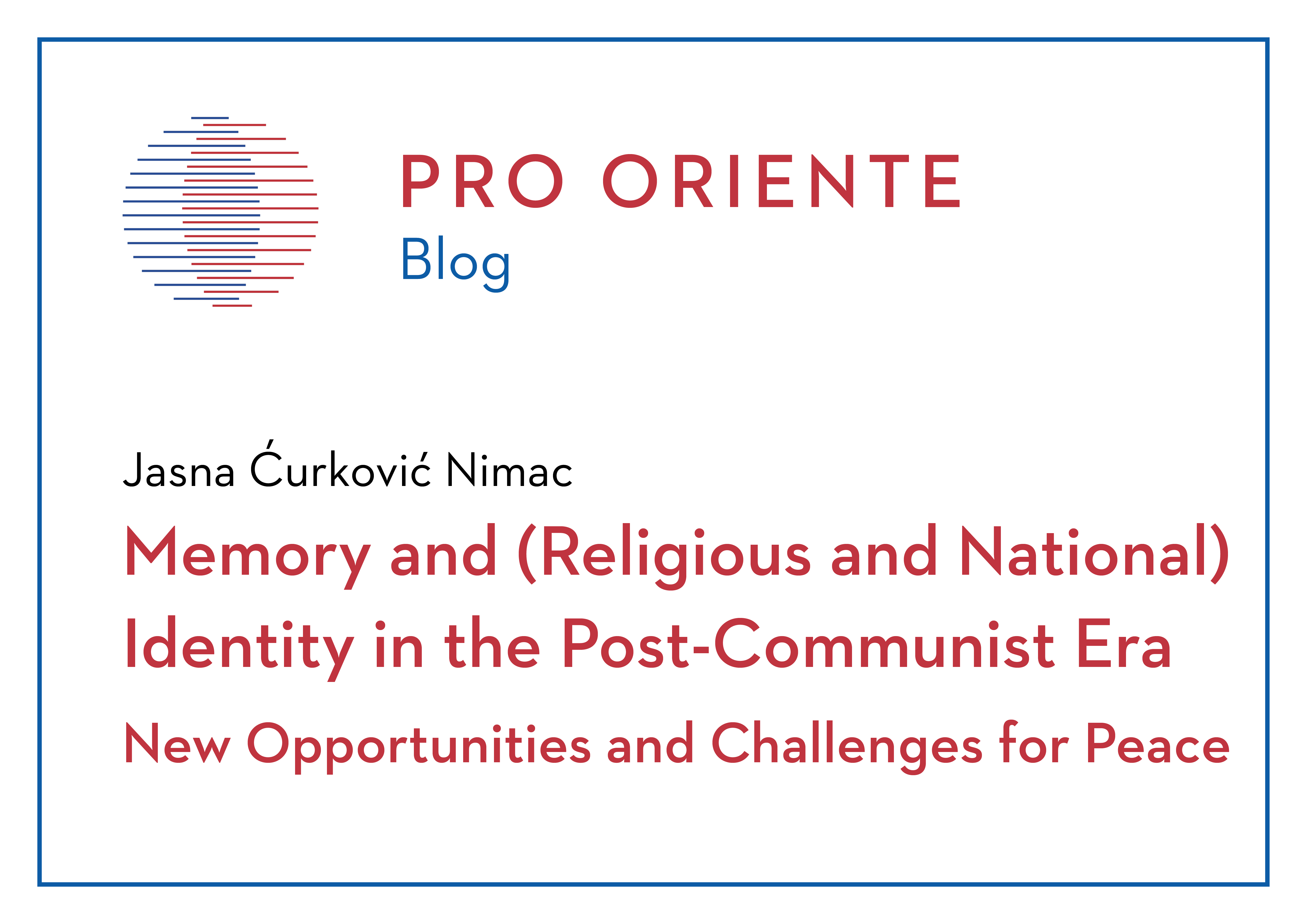
Memory and (Religious and National) Identity in the Post-Communist Era – New Opportunities and Challenges for Peace
Identity is a sociogenic and dynamic phenomenon that simultaneously acts as a factor of integration/inclusion and exclusion/separation. On the other hand, identity implies a certain sameness or self-awareness over time, and in this sense, memory plays an important role as the connective tissue of personal and collective identity. Given that the „other“ is often the context against which the image of oneself is created, memory can play an instrumental role in reinforcing the „useful“ narrative about oneself and the other to legitimize and justify exclusions and secure privileges.
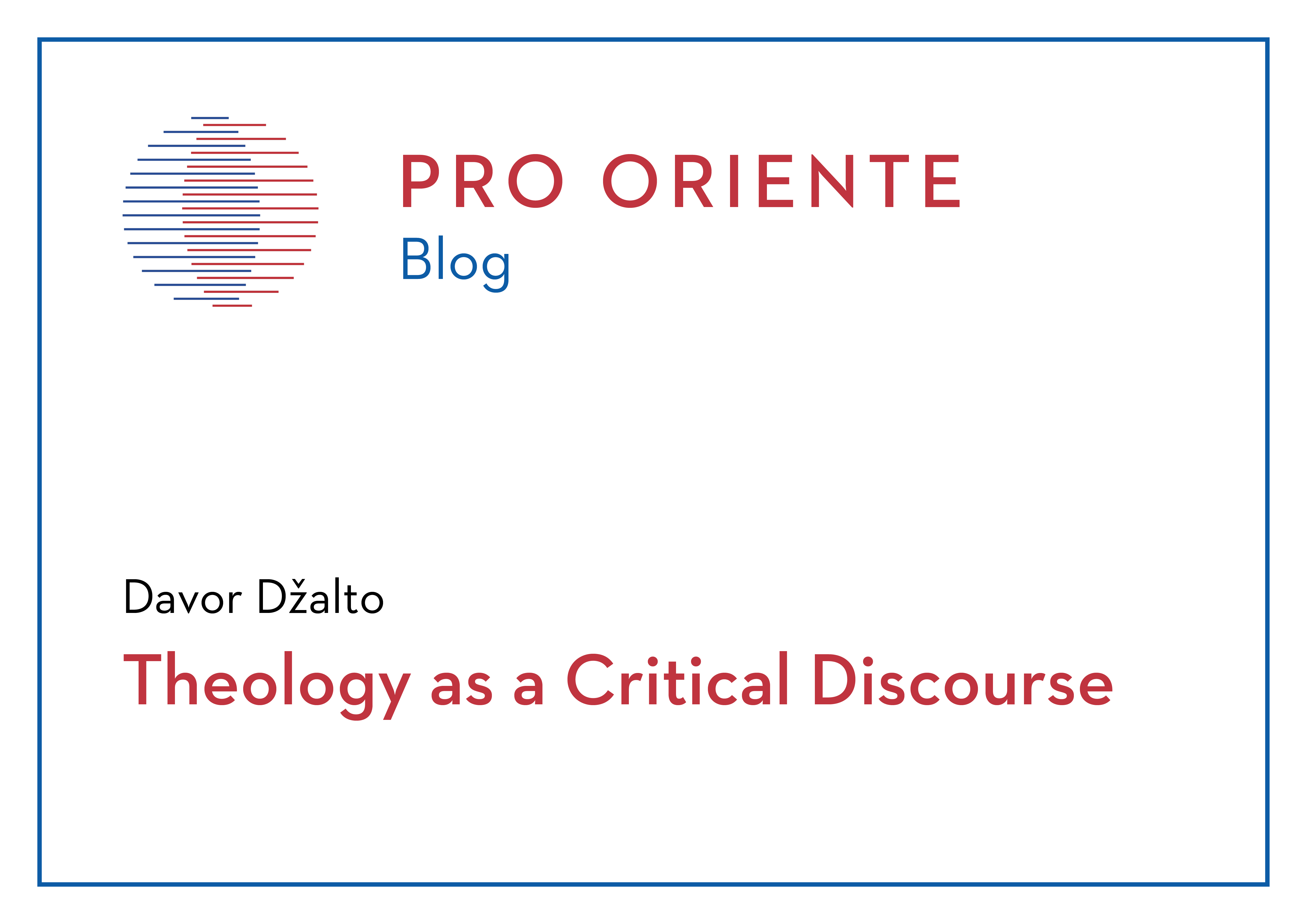
Theology as a Critical Discourse
The word “theology” has been used in various meanings. I will point to three of them, acknowledging that in actual theological practices and especially in the social life of Christianity, these meanings often blend and overlap without clear boundaries.



